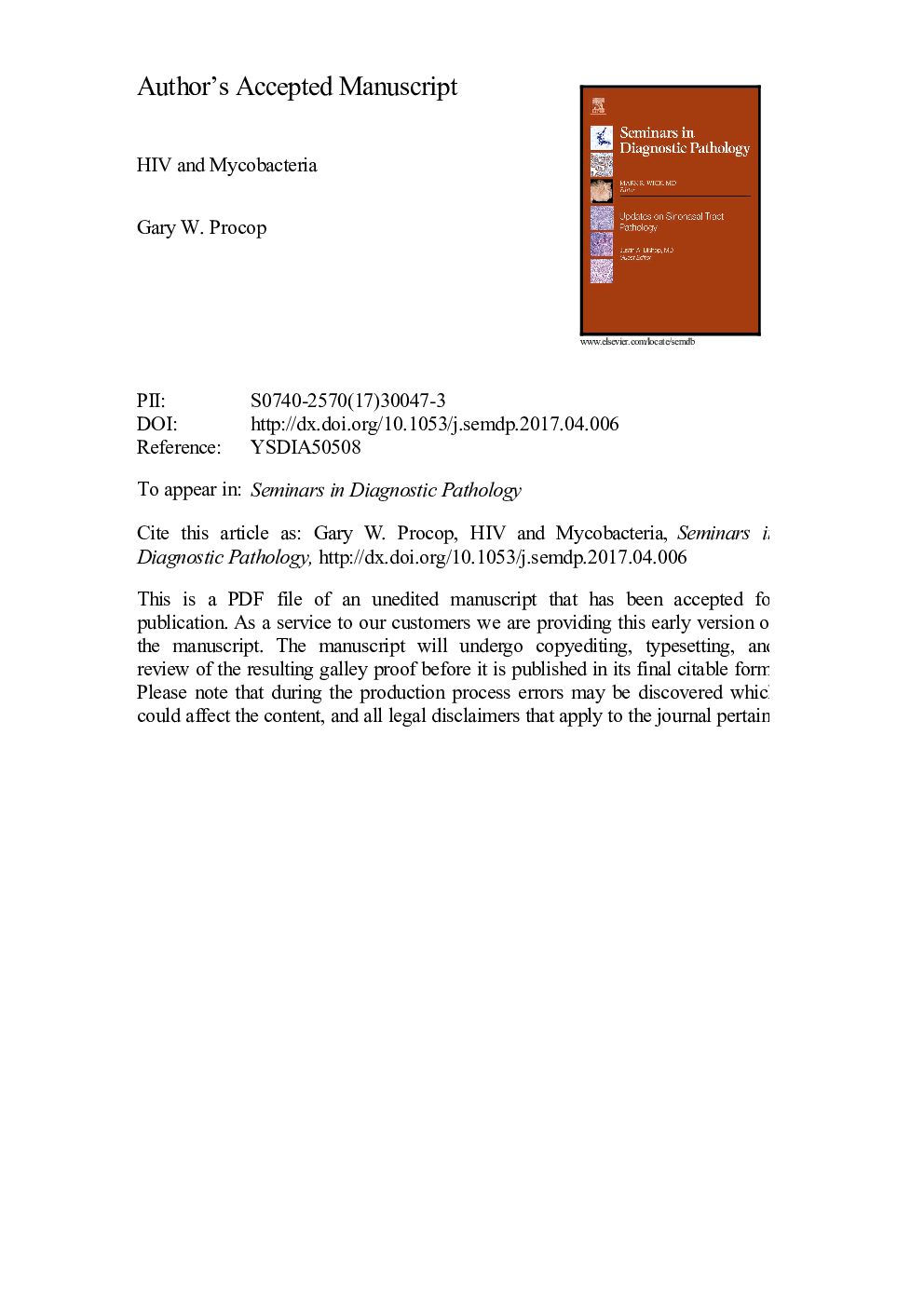| Article ID | Journal | Published Year | Pages | File Type |
|---|---|---|---|---|
| 5716673 | Seminars in Diagnostic Pathology | 2017 | 39 Pages |
Abstract
The importance of mycobacteria as opportunistic pathogens, particularly members of the M. avium complex (MAC), in patients with progressive HIV infection was recognized early in the AIDS epidemic. It took longer to appreciate the global impact and devastation that would result from the deadly synergy that exists between HIV and M. tuberculosis. This HIV/M. tuberculosis co-pandemic is ongoing and claiming millions of lives every year. In addition to MAC, a number of other non-tuberculous mycobacteria have been recognized as opportunistic pathogens in HIV-infected individuals; some of these are more commonly encountered (e.g., M. kansasii) than others (M. haemophilum and M. genevense). Finally, there are challenges to concomitantly treating the HIV and the infecting Mycobacterium species, because of antimicrobial resistance, therapeutic side-effects and the complex pharmacologic interactions of the antiretroviral and antimycobacterial multidrug therapy.
Keywords
Related Topics
Health Sciences
Medicine and Dentistry
Pathology and Medical Technology
Authors
Gary W. Procop,
